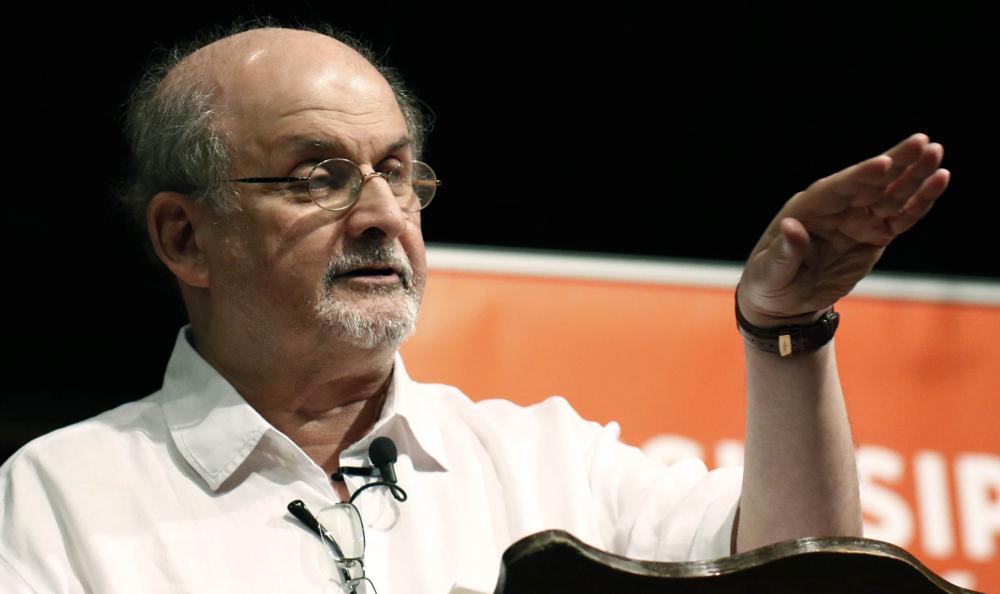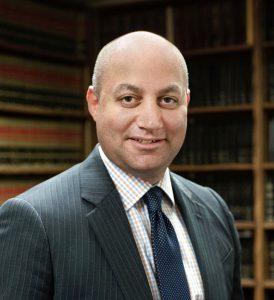Booker Prize-winning author Salman Rushdie was attacked by an unknown assailant while speaking at an event at New York’s Chautauqua Institution an hour or so ago. The 75-year-old has had to tread carefully since the publication of The Satanic Verses in 1988. Islamic clerics took offence to passages in the book, deeming his portrayal of Prophet Muhammad as disrespectful and blasphemous. It set off a furore among Muslims, with the book banned in countries with sizeable Muslim populations. It also brought a looming danger to Rushdie’s life, with a slew of threats coming his way. While the attack in New York is not the first attempt on his life, it is the only one to have caused him bodily harm.
Also Read: Famous author Salman Rushdie stabbed in the neck on lecture stage in New York
His life, perhaps already in flux, would change forever on Valentine’s Day, 1989. While attending his close friend Bruce Chatwin’s funeral, news filtered out that the Supreme Leader of Iran, Ayatollah Khomeini, declared a fatwa against him. In effect, the order demanded his execution, making him open prey to zealots worldwide. The fatwa would result in Great Britain and Iran breaking off diplomatic ties in March 1989, only resuming nine years later after Iran’s then President, Mohammad Khatami, partially reneged on actively pursuing Khomeini’s death wish:
“neither support nor hinder assassination operations on Rushdie”, chimed Khatami on that autumn day.
In 2005, the fatwa got fresh approval from Ayatollah al Khamenei, Khomeini’s replacement and present spiritual leader. As pilgrims trooped to Mecca, Khamenei reminded them of their religious duty- Salman must die, do my bidding! Iran’s Revolutionary Guard (IRG) also upheld the death sentence. The Iranian leadership still sends him Valentine’s Day cards, reminding him of their bloodlust.
Also Read: Salman Rushdie stabbed: What are the author’s best literary works?
But for Rushdie, the Iranian state was perhaps the most visible danger. The Ayatollah’s commands had spawned a bevvy of lurking killers. Add to the mix wealthy hardliners, and we get a sense of what walking beneath a dangling sword might have felt. It’s perhaps a cruel joke on him that the wealthy hardliner was yet another Ayatollah, Hasan Sane’i, leader of the ‘bonyad panzdeh-e khordad’ (Fifteenth of Khordad Foundation). He bumped the bounty from $2 million to $2.5 million for a dead Rushdie. Another semi-religious organization in Iran went even higher, scaling its prize money from $2.8 million to $3.3 million.
But the closest shave the Mumbai-born author had was on 3rd August 1989. Mustafa Mahmoud Mazeh from Guinea’s Conakry tried to carry out an assassination attempt on Rushdie, but his book-bomb-loaded with RDX exploded prematurely, disfiguring two floors of a posh Paddington hotel and killing him as a result. Acknowledged as the ‘First Rushdie Martyr’, a shrine has been installed in his name at Tehran’s Behesht-e Zahra cemetery. It reads:
“Born in Conakry, Guinea. Martyred in London, 3 August 1989.”
Lebanon’s Hezbollah has fanned the flames. In leader Hassan Nasrallah’s own words:
“I am sure there are millions of Muslims who are ready to give their lives to defend our prophet’s honour, and we have to be ready to do anything for that.”
Also Read: Salman Rushdie alive after attack; authorities monitoring situation: NY governor
Rounding off this august gathering is, of course, the vanguard of Islamic fundamentalism, Al Qaeda. In 2010, the outfit’s Anwar al-Awlaki published a hitlist on their mouthpiece, Inspire Magazine. Rushdie was among many names, including satirist Stephane Charbonnier of Charlie Hebdo-fame.







